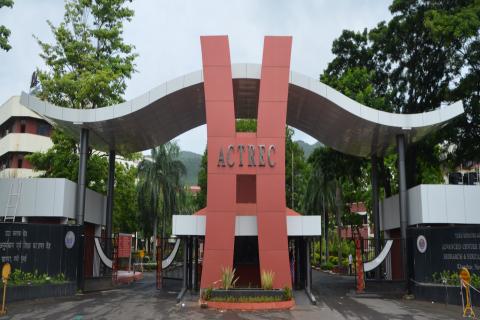Statement by Tata Memorial Centre Regarding the use of a Combination of Copper and Resveratrol in Cancer Patients

Statement by TMC - Press Release
One of the mandates of Advanced Centre for Treatment, Research and Education in Cancer (ACTREC), Tata Memorial Centre, which is an aided institution under the Government of India, is to conduct research that is relevant to the Indian scenario, will advance knowledge of cancer biology, and produce results which are useful in management of cancer patients. Many research programs of Tata Memorial Centre have defined the management of various cancers nationally and worldwide. Reducing treatment-related toxicity is one of the focus research themes of TMC and has the potential to enhance the quality of lives and outcomes of cancer patients.
The research on cell-free chromatin (fragments of chromosomes) and resveratrol-copper by Dr. Indraneel Mittra and colleagues of ACTREC, Tata Memorial Centre, Mumbai, which was recently shared with the media, was conducted with the aim of finding out the mechanisms of toxicity related to cancer-directed treatment and the development of metastases. The studies by Dr. Mittra and colleagues in cell culture and experimental animals have shown that circulating cell—free chromatin could affect normal cells and tissues, causing inflammation, which, if definitively proven in humans, could potentially be one of the mechanisms of side effects of cancer treatment. This was a novel finding considered worthy of further evaluation.
Dr. Mittra and colleagues have shown that combinations of copper and resveratrol (a commercially available nutraceutical) in specific ratios degrade cell-free chromatin in preclinical in vitro and experimental animal studies. In experimental animal studies, and preliminary and Phase II human studies; there was some evidence that the use of copper plus resveratrol could reduce the toxicity of chemotherapy.
Dr. Mittra's research, both preclinical and in human patients, has been published in several papers in peer-reviewed scientific journals. The list of scientific publications (with weblinks to the articles) related to this topic from Dr. Mittra's laboratory is included below this statement.
Additional human studies with larger sample sizes are required and are underway to find out whether these findings apply to human patients or not. It should be noted that resveratrol plus copper, including its tablet formulation, is not a substitute for established cancer treatments like surgery, radiotherapv. chemotherapy, hormone therapv and taraeted theranv. which have been conclusively proven to provide benefits and result in cures in a substantial proportion of patients.
It is further clarified that the effectiveness of copper plus resveratrol, including its tablet formulation, in reducing treatment toxicity or increasing cures in cancer patients remains to be established and is currently under investigation.
We hope that this statement will be considered by all relevant stakeholders in a balanced manner and will clarify any questions that may have arisen as a result of recent media reports.

